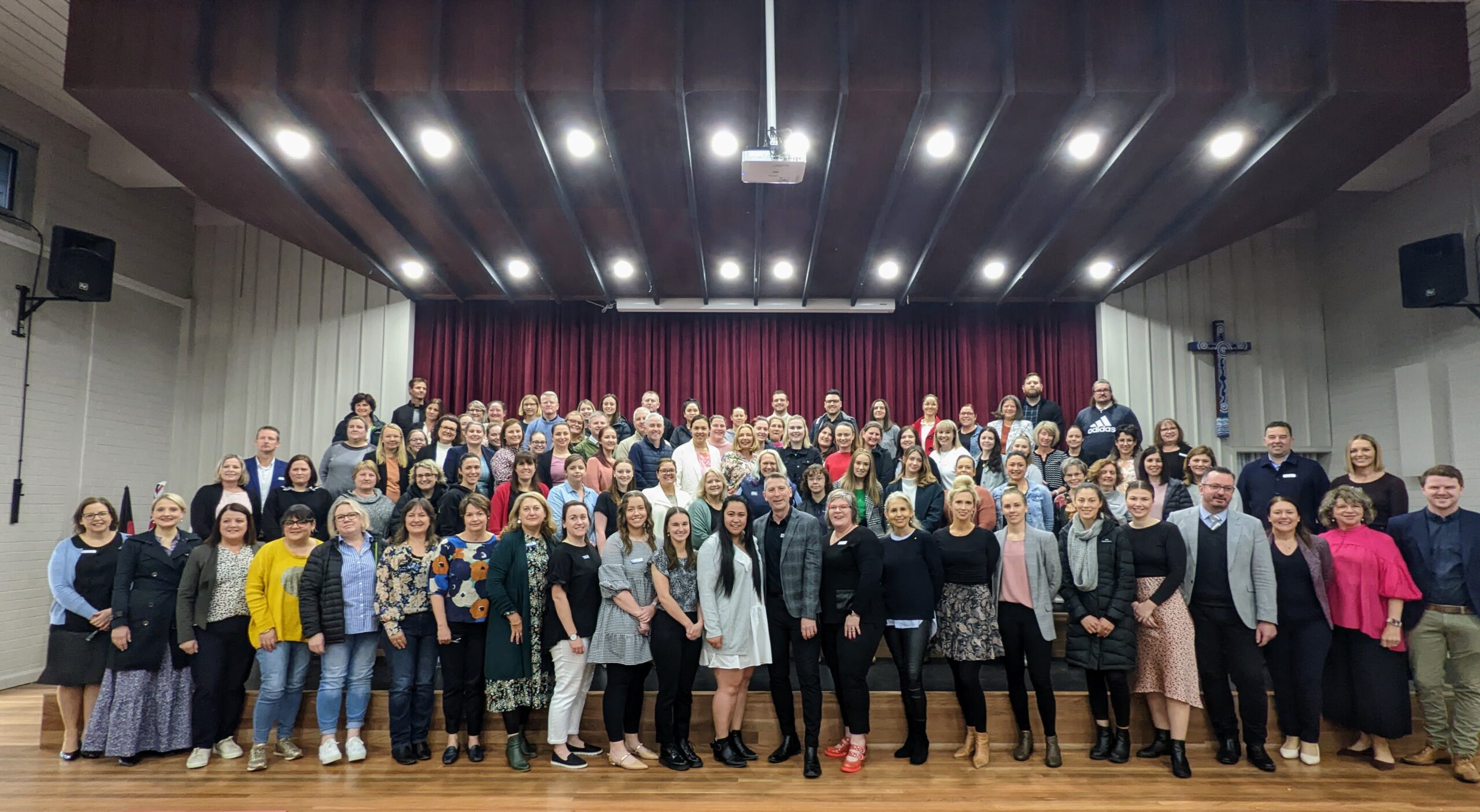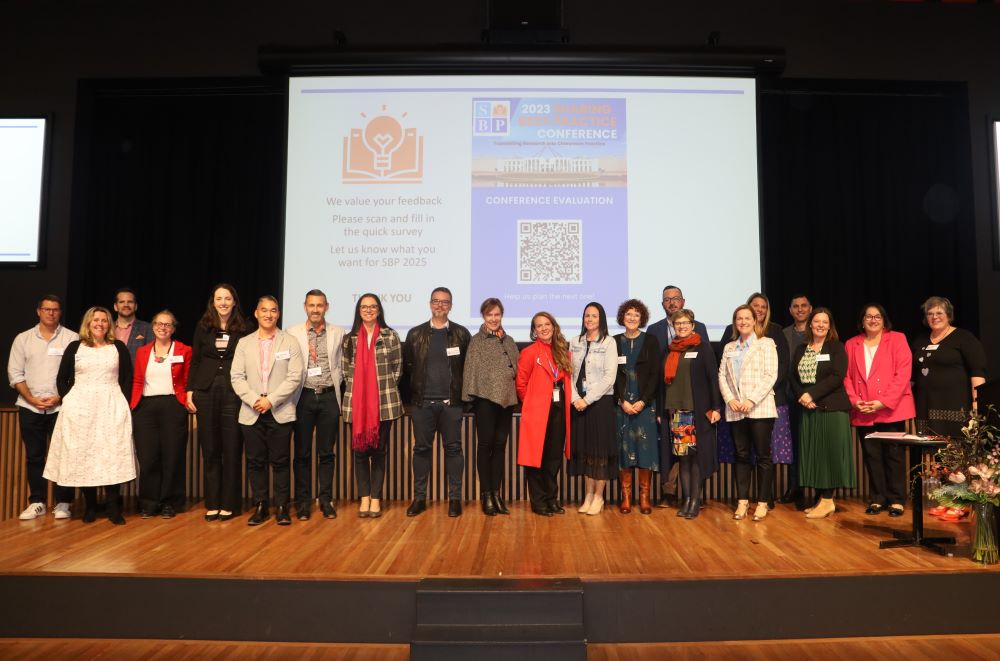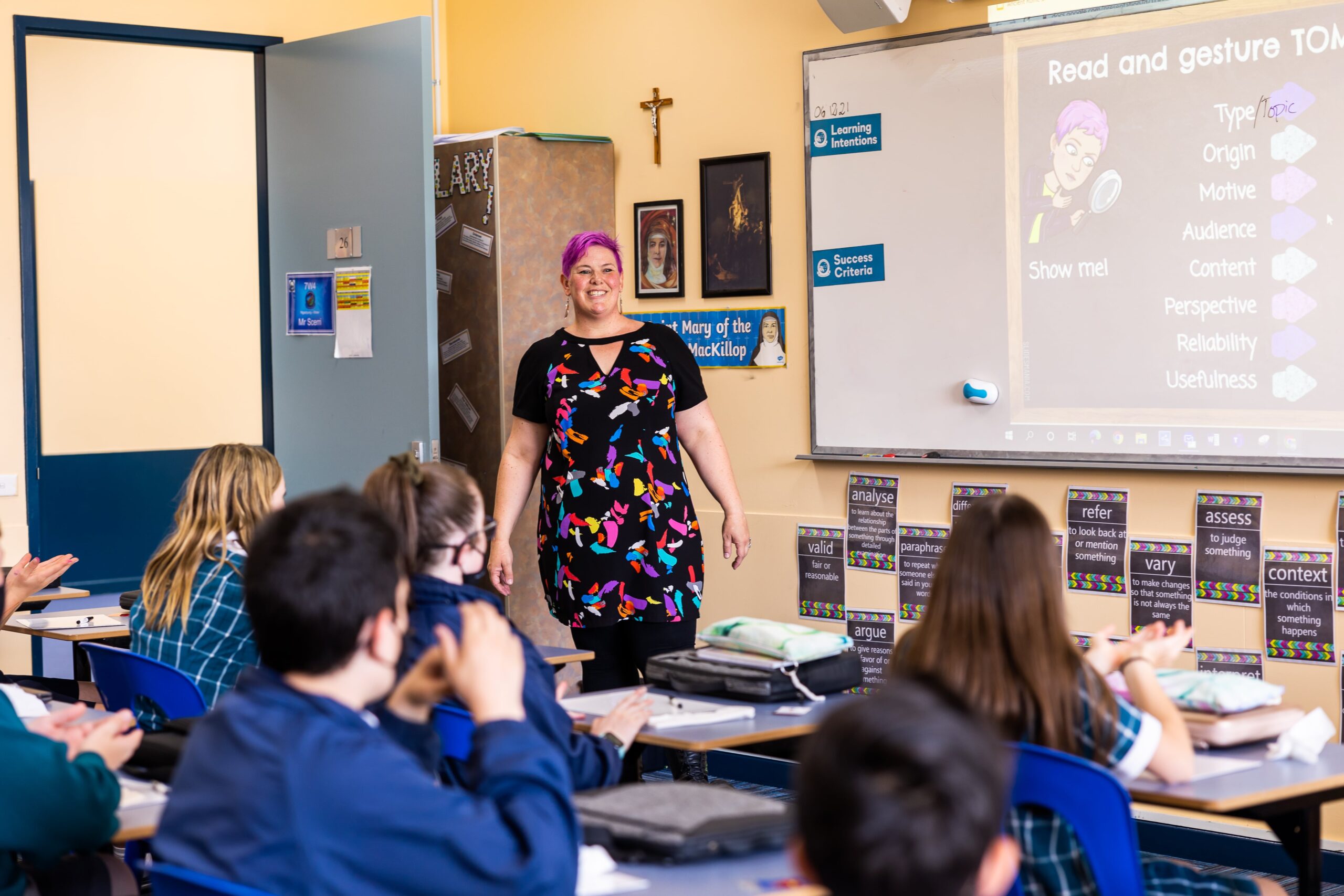Director, Ross Fox, shares the Catalyst journey to National Teaching Summit
Catholic Education Canberra Goulburn (CECG) is delighted to support Catholic Education Tasmania (CET) in the second annual Teaching Matters National Science of Learning Summit, in Hobart. The three-day Summit, which has drawn over 400 educators from around the country, provides a platform to engage with global experts in the best practice teaching methodologies founded in the Science of Learning. We welcomed the opportunity to share our experiences and Catalyst journey.

Ross Fox addresses delegates at the Welcome Reception on Sunday, 24 March
“The Summit offers participants the opportunity to learn from, and network with, some inspirational thought leaders. It was fascinating to witness the enthusiasm throughout the day as like-minded educators obtained actionable insights to elevate their teaching practice,” said CECG Director, Ross Fox.
In his keynote presentation, Ross Fox discussed the philosophy of the Catalyst program, sharing our bold goals for high impact teaching and competent reading, and the expert research and evidence underpinning the approach. He shared the professional learning journey undertaken by CECG over the past three years to embed best practice teaching methodology across curriculum (what we teach), pedagogy (how we teach) and assessment (how we know).

Ross Fox presents his Opening Address on Day One of the Summit
Of particular interest to delegates was how readily the system-led changes were adopted by schools, with four in five teachers expressing wholehearted support and appreciation for the program. Ross Fox showcased the successful outcomes in performance testing, illustrating improvements in student performance across the board, identified through system-wide assessment protocols including DIBELS, Phonics Screening checks, NAPLAN and ATAR which generated national media attention. Listen to Ross Fox’s presentation here.
Dr Gerard Gaskin delivered an equally enlightening address, sharing the significant progress achieved by the Insight program and noting how rapidly CET schools have come on board, attributed in part to Catalyst’s resounding proof of concept.
Day One ended with a lively Science of Learning (SoL) panel discussion, chaired by Dr Jenny Donovan, CEO, Australian Education Research Organisation. Panellists Glenn Fahey, Jordana Hunter, Dr Lorraine Hammond, Ross Fox and Dr Gerard Gaskin articulated the importance of teacher education and support at a system and university level. The conversation encompassed the value of high integrity curriculum to reduce variation and enable the teacher to focus on the student and their pedagogy.

Ross Fox participates as a panellist discussing the Science of Learning
The momentum continued into the second day of the Teaching Matters Summit, with keynote presentations from global experts in the Science of Learning and the Science of Reading.
To begin the day Jan Hasbrouck PHD, leading researcher, educational consultant and author spoke on the importance of comprehension when assessing fluency.
Toni Hatten-Roberts, Mastery Schools Australia and COGLearn, and Brendan Lee, Education Consultant and Host of Knowledge for Teachers Podcast spoke to the importance of rote learning and utilising the Instructional Hierarchy: Stages of Learning in the context of mathematics.
The afternoon commenced with a conversation surrounding links between Science of Learning and Wellbeing by Rebecca Birch, English Teacher and Director of Research and Practice, Queenwood. The final keynote was from Jennifer Buckingham who spoke to the landscape and quality of Initial Teacher Training.
To round out a knowledge rich second day, Glenn Fahey, Program Director at The Centre for Independent Studies, led the second panel discussion on the Science of Learning. This panel included Rebecca Birch, Lyn Stone, Dr. Nathaniel Swain, Brendan Lee, Dr Jan Hasbrouck and Michael Roberts. The discussion commenced with a vibrant exchange on the challenges of implementing the Science of Learning, with Lyn Stone highlighting the importance of finding a supportive school environment conducive to growth. Subsequently, the panel explored the primary considerations essential for understanding the Science of Learning within a classroom context, elucidating the advantageous aspects observable in such environments.


